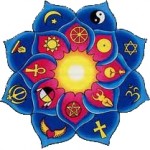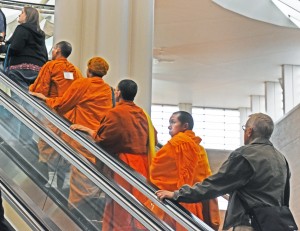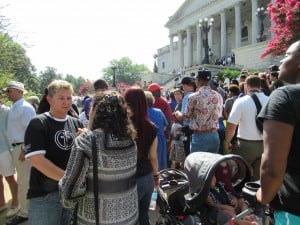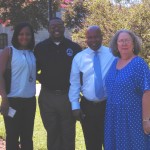Since last we met, my little corner of Interfaithland has been a patchwork quilt of emotions and events. I’ll start with the surprising death of one of my local interfaith colleagues. His name is Ahmad Amara and he came to our town in his retirement and it was his quiet voice that brought me to the place I stand regarding Palestine.
He was my first Muslim friend and his stories of growing up in Jaffa were sweet and heartbreaking. Ahmad died an old man so he remembered playing with Christians and Jewish kids when he was little. Stickball and soccer/football, as I recall. He was quick to say he was a retired scientist and businessman who was a Muslim—he wasn’t an imam or an Islamic scholar. He worked with an organization called Kids For Peace, which brings Jewish and Muslim kids (and their chaperone/sponsors) to summer camp to learn skills for living in peace.
He mostly understood my concerns about the place of women in the Muslim world and he spoke so beautifully of Hagar (he pronounced her name with a soft “zhe” sound in the middle and an equally soft “a”) and that “haj” is based on her brave journey into the wild with her little son Ishmael. He spoke several languages and he was essentially kind and curious. We will miss his presence, his persistence. I miss him already.
And we have a new rabbi in town, at the Conservative synagogue. He’s young, smart, energetic and funny—and I’m not just saying that because his mother-in-law is a friend of mine.
Two Baptist friends are enduring cancer treatments with great grace and subtle humor. One Episcopal friend is heading towards the diaconate and another will take her priestly ordination in a few weeks. One of our Mother Grove priestesses has an almost-toddler, another is close to the finality of her divorce.
Birth, death, sickness and healing, couplings, separations. Life transitions. Rites of passage.
Weary though I am with meetings and too-long discussions of the issues in the Middle East, there is great value in expanding our multi-faith horizons. All those people in all those transitional passages—I know them through my curiosity and engagement with people whose spirituality I don’t share. They are people for whom I care—not because we go to interfaith meetings together but because they are big-hearted and loving and we have stuff in common. That they are Muslim or Jewish or Baptist or Episcopalian or Pagan is less important than the sort of human beings they are. There are plenty of people in those religions that I don’t care much for—heck, there are people in the family of spiritualities to which mine belongs that I don’t care for.
Like goes with like, across the seeming barriers of our spiritual traditions. When I am tempted to dump all my grievances onto the adherents of a particular religion—including my own—I can remind myself of these bridges of compassion and affection. And I can encourage myself—and all of you—to do more bridge-building, to practice that most sacred and ancient religious practice.
Hospitality.

















